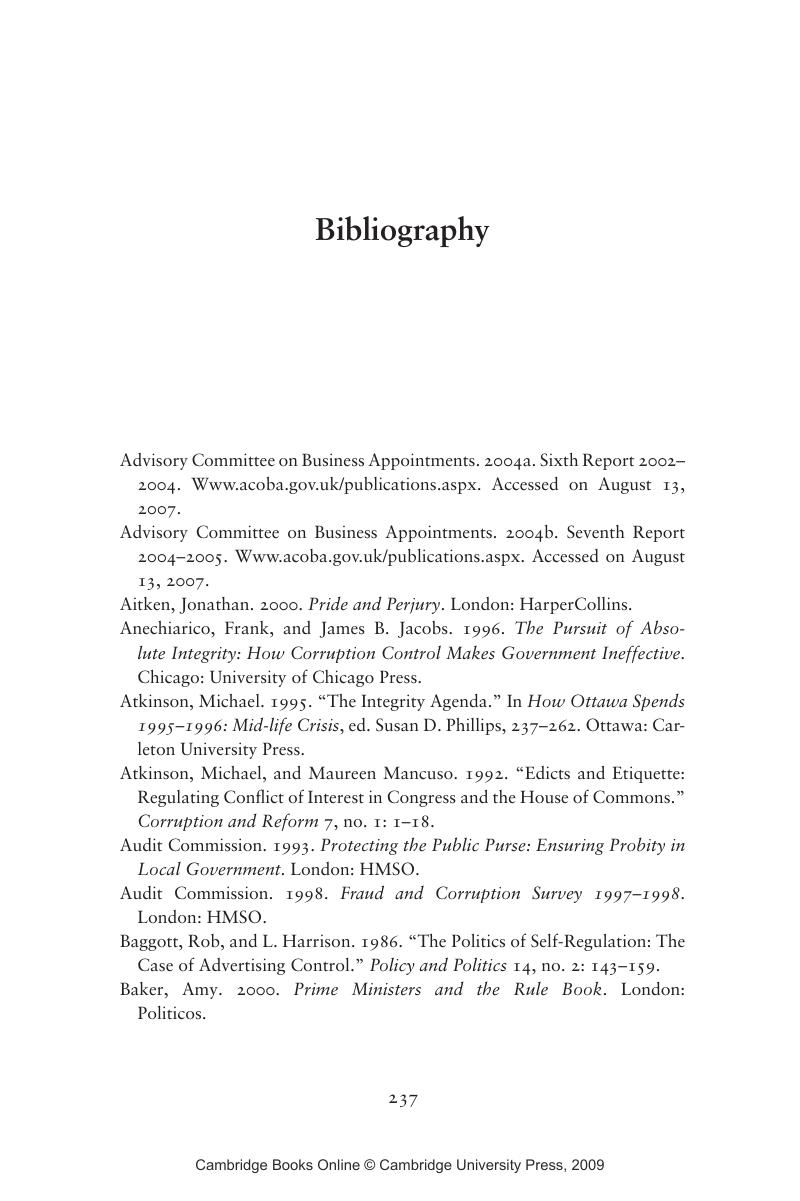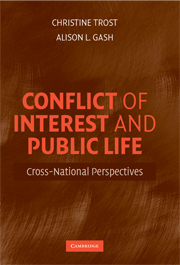Bibliography
Published online by Cambridge University Press: 31 October 2009
Summary

- Type
- Chapter
- Information
- Conflict of Interest and Public LifeCross-National Perspectives, pp. 237 - 254Publisher: Cambridge University PressPrint publication year: 2008



